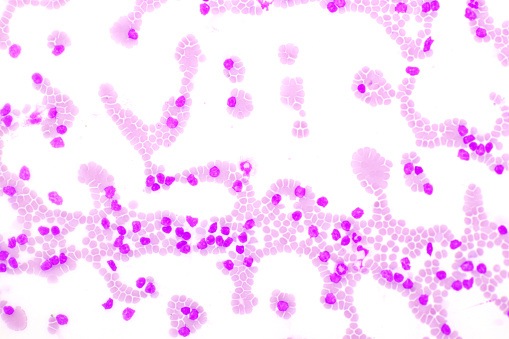
A study assessed the mechanisms of CD20 monoclonal antibodies (mAbs) with B-cell receptor (BCR)-associated kinase (BAKi) in patients with chronic lymphocytic leukemia (CLL). The study was published in the British Journal of Haematology.
Recent trial results have established BCR-associated BAKi, with or without CD20 mABs, as the preferred treatment for CLL. To evaluate the mechanisms by which these agents work, the researchers used phosphospecific flow cytometry and found that in leukemic cells in CLL, the CD20 therapeutic antibodies—rituximab, ofatumumab, and obinutuzumab—impede BCR signaling pathways targeting preferentially pBTKY551.
The researchers also observed that ibrutinib and idelalisib reduced pBTKY223 to a higher extent than pBTKY551. They wrote, “The strong reduction of pAKT induced by idelalisib was enhanced by its combination with rituximab or ofatumumab. Moreover, CD20 mAbs and BAKi induced the death of leukemia cells that was significantly potentiated by their combination. Analysis of the enhancement of cell death in these combinations revealed an approximately additive enhancement induced by rituximab or obinutuzumab combined with ibrutinib or idelalisib.”
The researchers concluded, “Taken together, our data identified negative regulatory effects of CD20 mAbs and their combinations with BAKi on BCR signaling and cell survival in CLL.”







 © 2025 Mashup Media, LLC, a Formedics Property. All Rights Reserved.
© 2025 Mashup Media, LLC, a Formedics Property. All Rights Reserved.